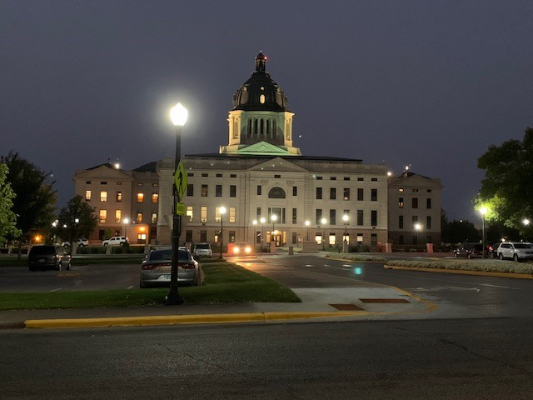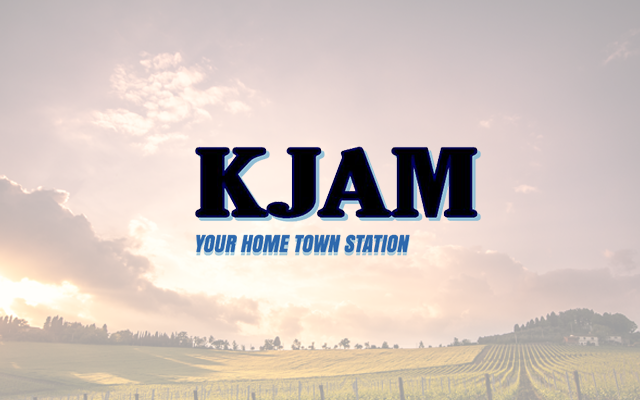State House passes bill regarding eminent domain for carbon dioxide pipelines

State Capitol in Pierre/SDBA
The South Dakota House of Representatives passed a bill limiting carbon dioxide pipelines from being able to use eminent domain proceedings against landowners who do not want the line to go across their property.
House Bill 1133 says carbon dioxide is a commodity when someone is willing to pay for it and not a commodity when it is going to be placed in a deep hole.
The distinction is essential, as the measure would allow the use of eminent domain if CO2 from the lines is used in other industrial processes.
It would not allow the companies shipping the odorless, colorless gas that the state’s ethanol plants produce to use condemnation if the gas is just stored geologically with no likelihood of later use.
Bill sponsor Republican Rep. Karla Lems from Canton said regardless of the definition of carbon dioxide as a commodity, nothing in the bill prohibits the planned carbon dioxide pipelines from being built.
She also noted that protecting property owners’ rights to exclude others from using their property involuntarily is protected under the South Dakota constitution.
However, bill opponent Republican Roger Chase from Huron said that clearly, CO2 is a commodity–which gives it common carrier privileges to use eminent domain–because there is a market for it.
He said it is used on soda pop, beer brewing, and in many of the processes at the Dakota Provisions turkey plant in his hometown of Huron.
The problem is that there is just too much of it to be absorbed in industrial uses.
“There’s only one way to get rid of CO2, and that is to transport it to a safe place,” Rep. Chase said. “The safest way is by using a pipeline.”
He also warned that passing the bill could hurt one of the state’s biggest agricultural industries, the production of ethanol and other plant-based fuels.
One bill supporter, Republican Rep. Jon Hansen of Dell Rapids, said an important principle was at stake.
“When we want to use something, we ask,” Rep. Hansen said. “We ask, and we give permission. That should be the case here.”
Rep. Hansen said using eminent domain in this case “will only benefit a few companies.”
The doctrine of eminent domain was first only used for governmental takings, such as roads and bridges.
The doctrine of eminent domain was first only used for governmental takings, such as roads and bridges.
Through the years, it has been extended to activities that provide a public good, such as utilities, petroleum pipelines, and power lines.
Two companies have proposed multistate pipelines that would run across South Dakota, taking away CO2 from many of the state’s ethanol plants.
Carbon dioxide is a by-product of the ethanol production process.
The two companies are Summit Carbon Solutions and Navigator CO2 Ventures.
Other legislators said their constituents were heavily for the ban on the use of eminent domain for carbon pipelines.
Others said their voters were for it and “had no trepidation” about the pipelines.
Another bill supporter, Republican Rep. Will Mortenson from Pierre, said, “We keep expanding eminent domain. Now it would be for a project that has the most tenuous grasp for eminent domain.”
Republican Rep Greg Jamison, an opponent, said that passage of the bill changes the rules the carbon dioxide pipelines have relied upon.
He said that the bill also sends the wrong message to other companies that may want to do business in South Dakota.
After about 40 minutes of debate, the House passed the bill on a 40 to 28 vote.
It now heads to a Senate committee for further consideration.
February 10, 2023
(Thanks, Todd Epp, SD Broadcasters Association Legislative Reporter)





